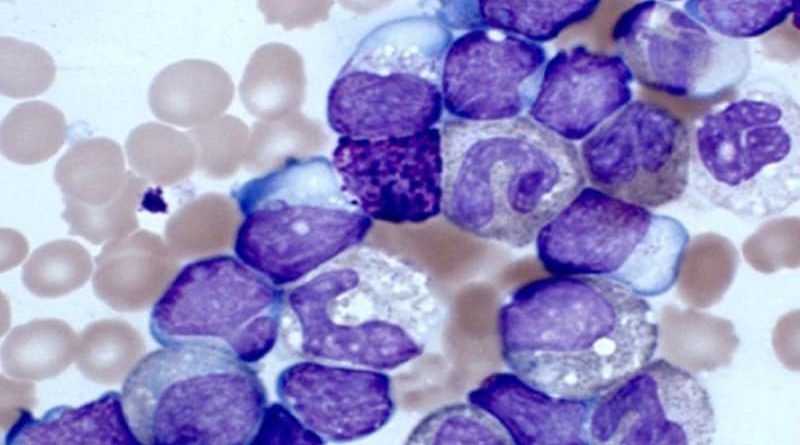Nilotinib Linked to Metabolic Syndromes and CVD in CML
TOPLINE:
The risk for diabetes, hyperlipidemia, and cardiovascular disease is higher in patients receiving nilotinib (Tasigna) vs other tyrosine kinase inhibitors for chronic myeloid leukemia (CML).
METHODOLOGY:
Tyrosine kinase inhibitors (TKI) are risk factors for metabolic syndrome and cardiovascular diseases (CVDs) in patients with CML, but it’s not clear which of the three TKIs — imatinib (Gleevec), nilotinib, and dasatinib (Sprycel) — carries the greatest risk.
To determine the risk of developing new-onset diabetes, hyperlipidemia, and hypertension post-TKI therapy, Taiwanese investigators reviewed three national databases to assess the incidence of new-onset metabolic syndrome — specifically, diabetes, hyperlipidemia, and hypertension — and CVD across 1538 patients with CML who received TKIs.
At baseline, 1211 of these patients did not have diabetes, 1235 did not have hyperlipidemia, and 1074 did not have hypertension.
TAKEAWAY:
The incidence rate ratios (IRR) of post-TKI diabetes were highest among patients treated with nilotinib vs imatinib and dasatinib (IRR, 3.15 for nilotinib vs imatinib; IRR, 4.97 nilotinib vs dasatinib); the same was true for new-onset hyperlipidemia (IRR, 4.47 for nilotinib vs imatinib; IRR, 3.50 nilotinib vs dasatinib) but not post-TKI hypertension, which was similar among the three TKI groups.
After adjusting for confounders, nilotinib was the only significant risk factor for post-TKI newly diagnosed diabetes and hyperlipidemia (subdistribution hazard ratio [SHR], 3.83 for diabetes; SHR, 5.15 for hyperlipidemia).
In the non-hyperlipidemia group, patients receiving nilotinib were significantly more likely to develop CVD than those treated with imatinib (IRR, 3.21).
Overall, nilotinib was associated with a nonsignificantly higher risk for CVDs compared with the other two TKIs.
IN PRACTICE:
“The present study represents the first report demonstrating a significant association between nilotinib, metabolic syndrome, and CVDs,” the authors say. To reduce the risk of CVD, it may be important to “avoid nilotinib in patients with CML who have poorly controlled diabetes and hyperlipidemia” as well as to “regularly monitor lipid profiles” during TKI use.
SOURCE:
The study, led by Cih-En Huang of the Chang Gung Memorial Hospital, Chiayi, Republic of China, was published August 10 in The Oncologist.
LIMITATIONS:
This was a retrospective study. The relatively small number of cases of post-TKI diabetes, hypertension, hyperlipidemia, and CVD may have led to some nonsignificant results.
DISCLOSURES:
The work was supported by the Chang Gung Medical Foundation, Taiwan. The investigators had no conflicts of interest.
M. Alexander Otto is a physician assistant with a master’s degree in medical science and a journalism degree from Newhouse. He is an award-winning medical journalist who worked for several major news outlets before joining Medscape. Alex is also an MIT Knight Science Journalism fellow. Email: [email protected] .
For more from Medscape Oncology, join us on X (formerly Twitter) and Facebook
Source: Read Full Article
